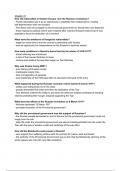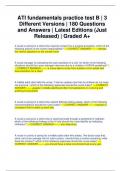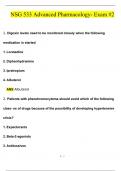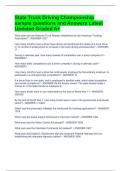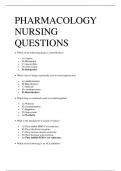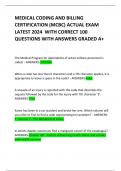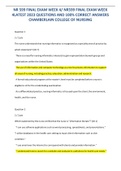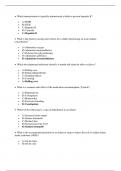Summary
AQA A level (and AS) history, international relations (2K) chapter 13 to 18 summary notes (in Q&A) and chapter essay plans
- AQA A level and AS history, international relations component 2K - chapter 13 to 18 - summary notes (in Q&A format, great for flashcards) and end of chapter Alevel essay plans
[Show more]
